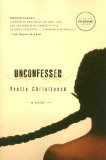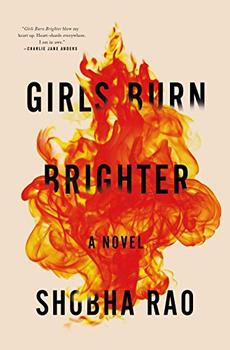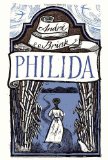Summary | Excerpt | Reading Guide | Reviews | Beyond the book | Read-Alikes | Genres & Themes | Author Bio

Imprisoned for life in the
Robben Island prison colony, Sila talks in her mind with her dead son, Baro,
and later with a whole host of spirits from her past. She remembers her
love and desperate grief for Baro, and for her other children mostly lost to
her: Carolina, Camies, Pieter, another boy "who came and went too quietly for a
name", Meisie, Catherina and Debora - all the result of rape either by her
former owner or by prison guards, but intensely loved nonetheless.
Through her lyrical, rambling voice that reveals her mental state to be closer
to madness than sanity we slowly learn of her life, from when she was stolen as
a small child by slavers in Mozambique, through her ownership by a variety of
masters, to the ultimate irony of her present life as a freed slave (slavery
having been abolished) condemned to life imprisonment.
As she breaks stones in the prison quarry and attempts to care for the small
children born to her in prison, she looks back on the daily humiliations and
larger injustices that have defined her life, but also on the few brief
pleasures she has been able to eke; and slowly we learn what the law considers
to be her crime - setting free the person she loved most in the only way available to her.
Unconfessed is rambling, circular and sometimes confusing; but
it's also a lyrical, powerful and important piece of writing. Depending on
your viewpoint you may side with the reviewer for Kirkus who describes it as "a
gorgeous, devastating song of freedom that will inevitably be compared to Toni
Morrison's
Beloved" or Entertainment Weekly who thinks it "plods along like
Gertrude Stein with a head cold."
A Short History of South Africa (map)
The Dutch-East India Trading company, led by Jan van Riebeeck accompanied by
82 men and 8 women, were the first to colonize the Cape of Good Hope in 1652. Cape Town was a useful supply
point for the company's ships on their journeys from Europe to Asia.
Rapid development required a dramatic increase in the labor force, especially
when Dutch settlers started to arrive together with other Europeans, including a large group of French Huguenots
(French Calvinists). Originally slaves came mainly from West Africa,
particularly from Guinea and Angola. Later, they were brought from Mozambique
and Madagascar. Slaves were also brought from Indonesia, Malaya, China and
India.
Soon the settlement started to spread inland on to land formerly occupied by the
Khoikhoi. By
the early 19th century, the Boers (Dutch colonists) had moved into areas
occupied by the Xhosa, which led to ferocious battles. Meanwhile,
confrontation was building in the towns with citizens rising
up against the colonial administration to demand their independence. This
power struggle provided an opportunity for other colonial powers. The
British seized the Cape in 1795 to prevent it falling into French hands but then
relinquished it back to the Dutch in 1803 before taking sovereignty in 1814.
At that time they found a colony of approximately 20,000 whites and 25,000
slaves, plus 15,000 Khoisan and 1,000 freed blacks.
In 1820, 5,000 British immigrants arrived. In 1833 the slave trade was
declared illegal and the "Emancipation Act" demanded that slaves be set free in
return for a nominal compensation payment from the state. The Boers felt that the
British policy destroyed their traditional social order which was based on
racial separation and white predominance; starting around 1835 more than
10,000 Boers left the Cape Colony with their families and went north and
north-east. Some ended up in Zulu territory, where 500 were killed (the
Zulu Kingdom was still strong at the time, following the bloody territorial
wars fought by the Zulus led by Shaka). In 1838, the Boer retaliated; they
completely defeated the Zulus at the "Battle of Blood River" and established a short-lived Boer Republic in Natal; but in 1842
British troops arrived and annexed the area. Natal, now Durban, had been a
strategic port-of-call since 1497 when Portuguese sailor Vasco da Gama first
reached it.
In 1879 the British laid claims to the whole of Zululand leading to the
Anglo-Zulu Wars which, after considerable bloodshed, ended in a British victory in 1887.
Meanwhile, the Boers, who'd been defeated by the British in 1842, moved further
north-east, eventually settling around the Vaal River and successfully defending
it against the British who attempted a claim but gave up when they met with
resistance, deciding that the area was of little economic interest.
However, this was to change with the discovery of diamonds (1867) and gold
(1886) in the Transvaal area.
In 1899 war broke out between the two Boer
Republics and the two British Republics (Cape and Natal). The overwhelming
numbers of British forces relatively quickly overcame the Afrikaners, so the
Boers moved into guerrilla warfare, which the British, led by General Kitchener,
put down with swift severity - hunting down the fighters and destroying the
crops. The British interred many women and children in "concentration
camps" (a term coined for the concentration of humanity held within). The
camps were allegedly conceived as a humanitarian aid for families whose farms
had been destroyed in the fighting, but famine and disease in the camps was
rife. It is estimated that 25% of Boer and 12% of black Africans interred
died (about 27,000 Boer, mainly children and 14,000 black Africans). Eventually a peace contract was signed and in 1902 the Boer
Republics became British Crown Colonies, which were united into the South African
Union in 1910, but only the white population had the right to vote.
In 1913 the Native-Land Law act consigned 7.5% (later 13%) of all South Africa
to be reservations for blacks. No whites could purchase land in the
reservations, and no blacks could purchase land elsewhere. In the '60s the
black settlements were declared autonomous Homelands, and remained as such until
the first truly free elections in 1994. With no right to vote or to
strike, the black population had no means of political influence, and so the African National Congress
(ANC) and other resistance movements formed. They were initially badly
organized and minimally effective and the white governments continued to pursue their politics
virtually unobstructed. After the Second World War, the conflicts
intensified and there were a number of strikes. The whites
became nervous and voted in the right-wing National Party in 1948 with an
overwhelming majority.
The National Party coined the concept of apartheid and consistently enforced the
policy, prohibiting any marital or sexual relationships between the different racial
groups and segregating public facilities including transport and education.
In the 1950s, black resistance, led by the ANC, consolidated and became more
militant. In 1976, thousands of black pupils were shot in Soweto for
protesting the compulsory teaching of Afrikaans (the language that developed
from 17th century Dutch). Unrest spread and South
Africa became a full fledged police state. In 1990, only a few months
after taking office, President F.W. de Klerk openly admitted the failure of
apartheid policies, which had led to years of trade embargoes and a collapsed
economy, and opened negotiations for free elections. Shortly after,
ANC leader Nelson Mandela was released from prison after 27 years, and a
referendum of the white population confirmed that 70% supported the reforms.
After two years of turbulence, a constitution was drafted and the first
democratic elections were held in 1994; the ANC won a landslide victory, and
Nelson Mandela was inaugurated in May 1994, with F.W. de Klerk as second
Vice-President.
![]() This review was originally published in The BookBrowse Review in January 2007, and has been updated for the
October 2007 edition.
Click here to go to this issue.
This review was originally published in The BookBrowse Review in January 2007, and has been updated for the
October 2007 edition.
Click here to go to this issue.

If you liked Unconfessed, try these:

by Shobha Rao
Published 2019
A searing, electrifying debut novel set in India and America, for readers of Rupi Kaur, about the extraordinary bond between two girls driven apart by circumstances but relentless in their search for one another.

by André Brink
Published 2013
In Philida, longlisted for the Man Booker Prize, André Brink—"one of South Africa's greatest novelists" (The Telegraph)—gives us his most powerful novel yet; the truly unforgettable story of a female slave, and her fierce determination to survive and to be free.




We should have a great fewer disputes in the world if words were taken for what they are
Click Here to find out who said this, as well as discovering other famous literary quotes!
Your guide toexceptional books
BookBrowse seeks out and recommends the best in contemporary fiction and nonfiction—books that not only engage and entertain but also deepen our understanding of ourselves and the world around us.